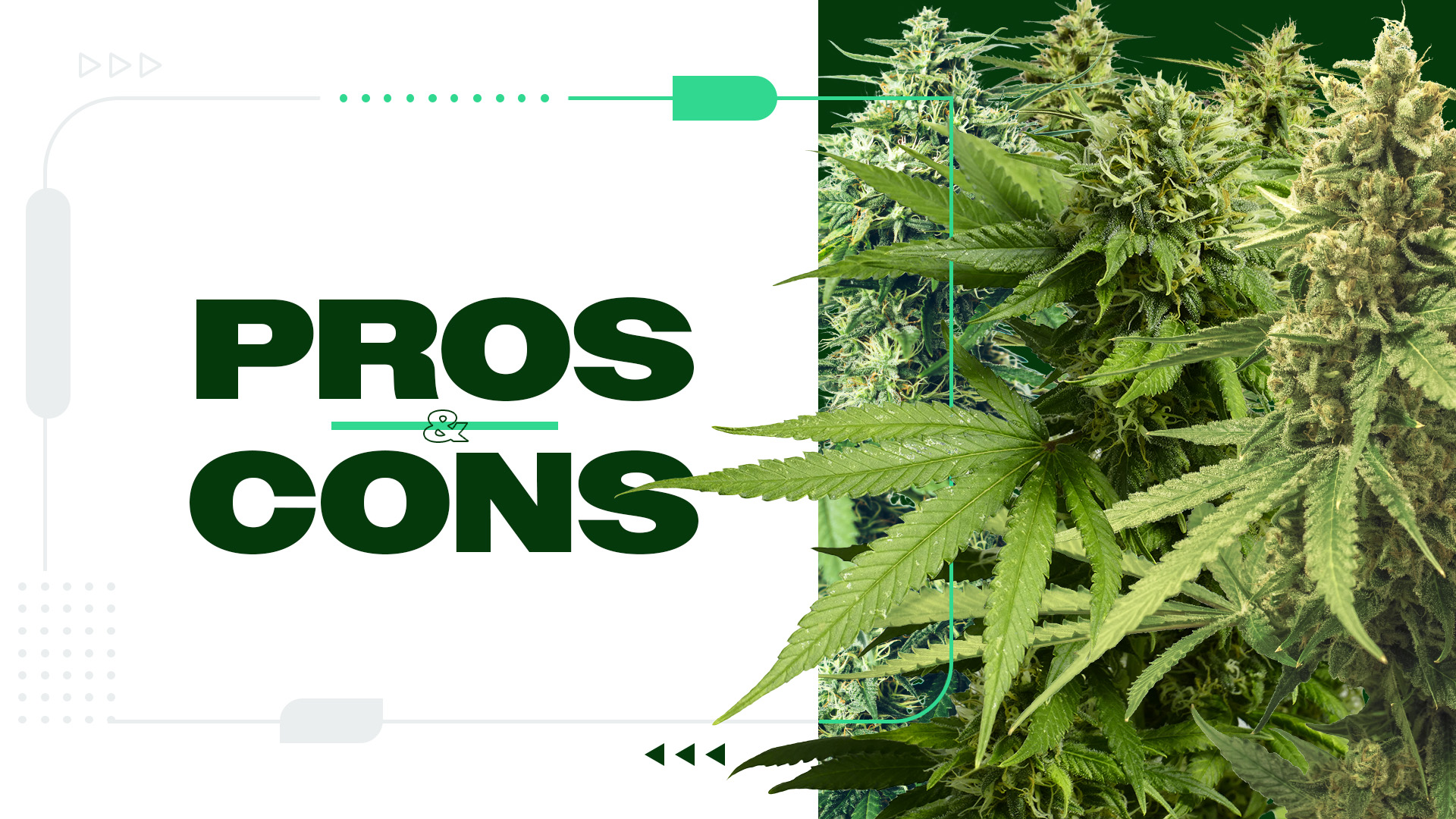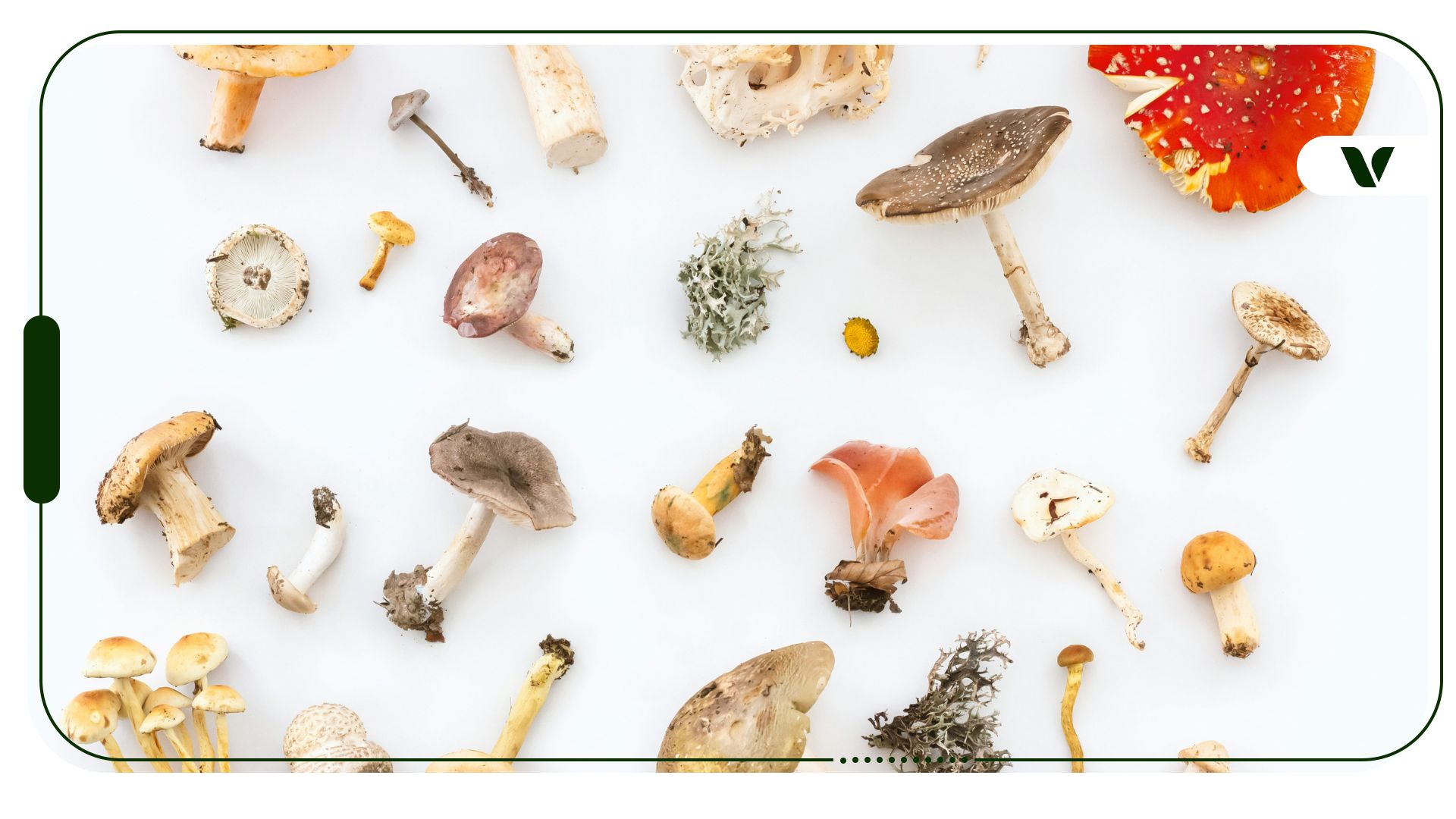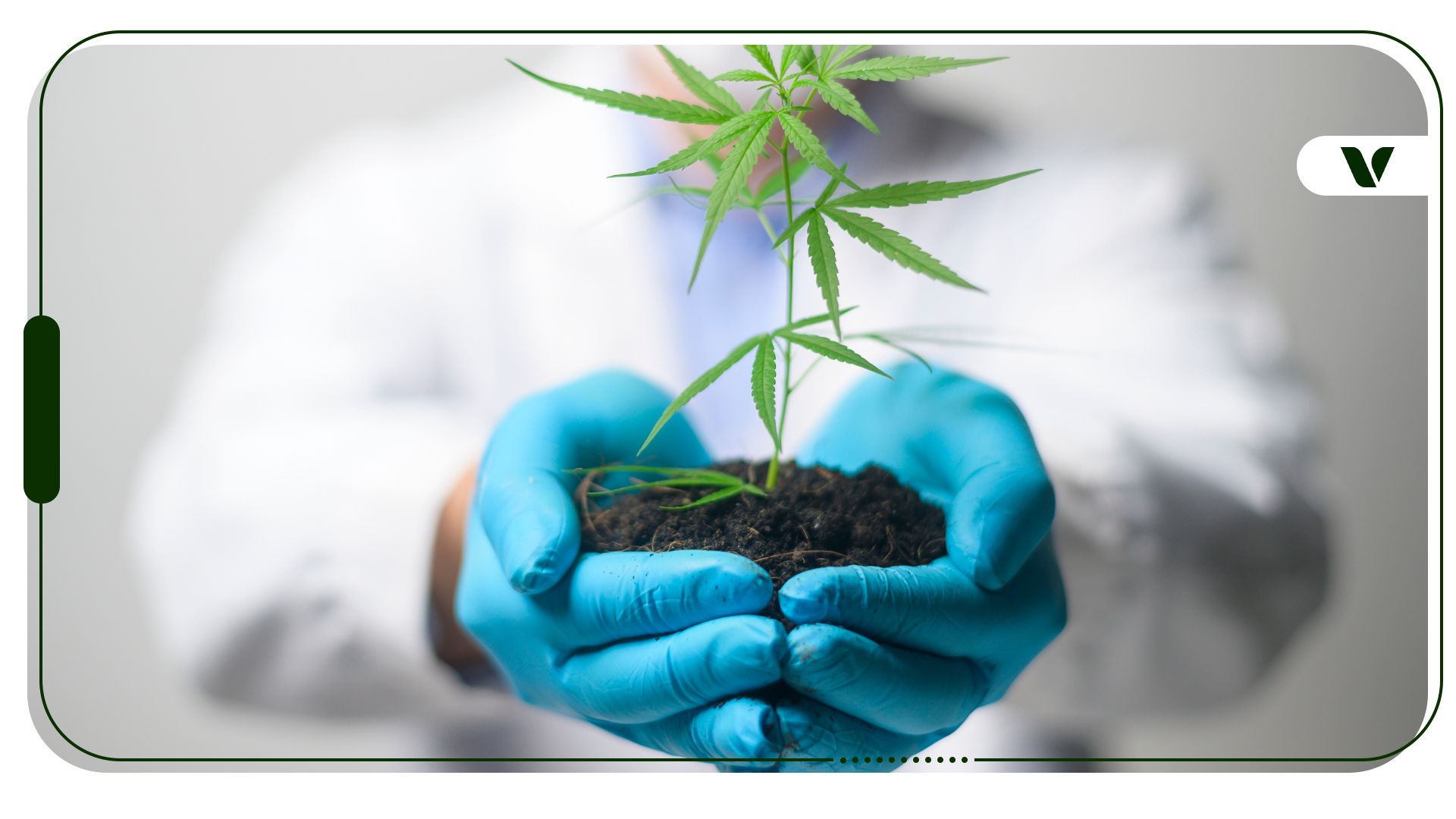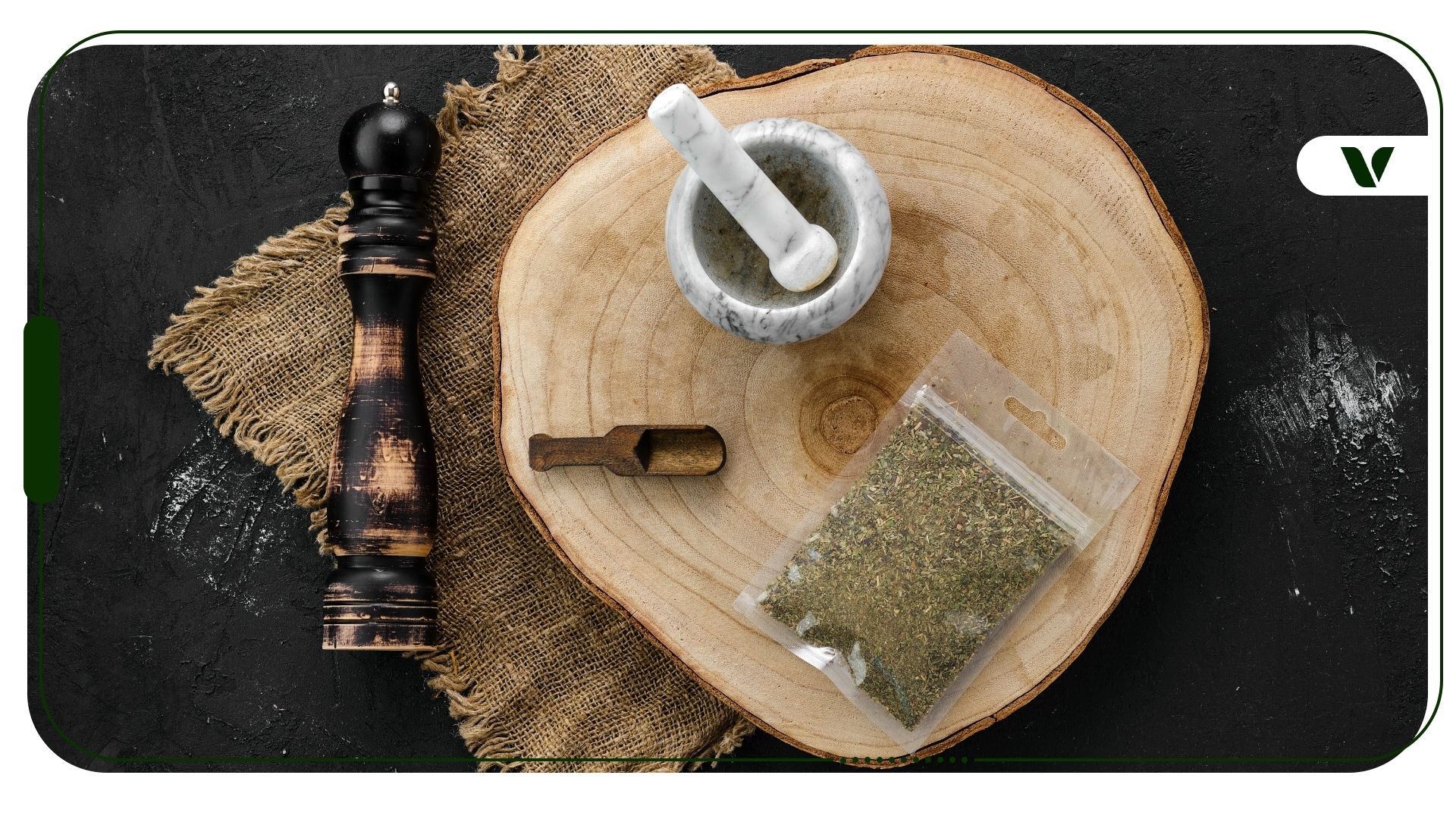Cannabis remains federally illegal in the U.S. today. However, with the liberalization of cannabis policies across dozens of states, more research has been allowed to be conducted on the effects of cannabis. As such, the debate about cannabis pros and cons has widened over the past two decades — and continues today. As such, the need for informed discussion about marijuana’s potential health benefits and risks is more necessary than ever.
Below, we explore the pros and cons of cannabis use, including health insights.
Pros of Cannabis Use
As more states have opted for the legalization of cannabis both medically and recreationally, researchers have been granted more freedom to study the cannabis plant. Interest and need for solid data concerning cannabis and its potential benefits or drawbacks have both grown. Today, we know more about the different cannabinoids and their potential therapeutic benefits than ever before. Let’s explore some of the most researched benefits of cannabis.
Relieves Pain
One of the most common reasons people miss work and have a decreased quality of life is due to various types of chronic pain. From PMS cramps and migraines to fibromyalgia and chronic neuropathic pain, many people are debilitated by daily, overwhelming pain. Whether applied topically or consumed orally, cannabis not only provides pain relief but also helps reduce reliance on harsh, addictive opioids and other OTC (over-the-counter) pharmaceuticals that can compromise organ function.
Both the short-term and chronic use of prescription opioids have been associated with increased morbidity and mortality. Access to medical cannabis has been connected with a decrease in opioid prescriptions, opioid doses, and other pharmaceuticals, as well as alcohol and tobacco. According to the National Academies of Sciences, Engineering, and Medicine, “substantial evidence” exists for the use of cannabis and cannabinoids to treat chronic pain.
Reduces Inflammation
Inflammation is a cause and symptom of many chronic conditions, including multiple sclerosis (MS) and muscle spasms, epilepsy, glaucoma, Alzheimer’s disease, and more. Inflammation is one of the most popular health problems treated with medical cannabis. Cannabinoids such as cannabidiol (CBD) are potent anti-inflammatory agents. One of the most popular reports demonstrating that CBD is good for inflammation was published in 2010.
Reduces Nausea
Many people experience nausea either regularly or occasionally from digestive problems, medications, treatments like chemotherapy, and more. Cannabis may help decrease stomach pain and regulate your body’s digestive processes, like metabolism. Cannabis also reacts with brain receptors to help regulate the feelings that are often associated with nausea. It can also stimulate appetite for people struggling to consume food due to nausea.
Preclinical and clinical research indicate that cannabinoids, including CBD, may be effective for clinically treating both nausea and vomiting. Some THCA studies have found that this cannabinoid has a heightened potential for treating nausea and vomiting. According to one study, THCA proved to be “a more potent alternative to THC in the treatment of nausea and vomiting.” More research is needed in this area to fully explore the different cannabinoids and their medical value.
Meanwhile, synthetic forms of THC like dronabinol and nabilone are already FDA-approved to treat nausea and vomiting after cancer chemotherapy. Dronabinol is also approved to improve weight gain and appetite in patients with AIDS.
Alleviates Depression and Anxiety
In 2010, researchers at Harvard University suggested that cannabis reduces anxiety, improving the user’s mood and acting as a sedative in low doses. A 2018 study on the potential of cannabis to reduce anxiety found that the anxiolytic (anxiety-reducing) effects of cannabis are in part dependent on the strain, terpenes, and THC:CBD ratio.
Specifically, the study stated that delta-9-tetrahydrocannabinol (THC)—known for its psychoactive effects—appeared to reduce anxiety in low doses but increased anxiety in higher doses. CBD, conversely, appears to decrease anxiety across the board since it lacks the negative side effects such as paranoia that come with intoxication. CBD has also been shown to balance out some of the anxiety caused by THC when the cannabinoids are paired.
A 2021 observational study explored the antidepressant and anxiolytic effects of cannabis use and found that it “was associated with lower self-reported depression” and that “medicinal cannabis users also reported superior sleep, quality of life, and less pain on average. Initiation of medicinal cannabis during the follow-up period was associated with significantly decreased anxiety and depressive symptoms, an effect that was not observed in Controls that never initiated cannabis use.”
The study concluded that cannabis use may reduce anxiety and depressive symptoms in clinically anxious and depressed populations, although they noted that future placebo-controlled studies were needed to replicate these results. Similarly, a 2021 systematic review concluded that cannabis was associated with reduced symptoms of post-traumatic stress disorder (PTSD), which often include depression and anxiety.
Improves Sleep Quality
Preliminary research into cannabis and insomnia suggests that CBD may have therapeutic potential for the treatment of insomnia. THC may decrease the time it takes to fall asleep but could impair sleep quality long-term. According to a 2008 clinical review, “acute administration of cannabis appears to facilitate falling asleep and to increase Stage 4 sleep.”
A randomized, placebo-controlled 2021 randomized, double-blinded, and placebo-controlled clinical trial exploring insomnia and medical cannabis found that “two weeks of nightly sublingual administration of a cannabinoid extract (ZTL-101) is well tolerated and improves insomnia symptoms and sleep quality in individuals with chronic insomnia symptoms.” Likewise, a 2021 study concluded that “medicinal cannabis users perceive a significant improvement in insomnia with cannabinoid use.”
May Help Those With Epilepsy
Ongoing research suggests that cannabis compounds, including CBD and THC, have shown potential in helping patients with epilepsy alleviate symptoms and prevent seizures.
CBD, in particular, has been studied for its potential to reduce seizure frequency and severity. When CBD interacts with the cannabinoid receptors in the brain, it helps to regulate neurotransmitter release and neuron activity — which can help stabilize the excessive firing that can lead to seizures.
Coupled with its anti-inflammatory and neuroprotective potential, cannabis compounds may help protect the brain from damage caused by seizures, which could contribute to long-term improvements overall.
May Have Anti-Cancer Effects
Years have research has indicated that medical cannabis may help to effectively alleviate various symptoms associated with cancer, such as pain, nerve damage, nausea, appetite loss, cachexia, and depression.
However, research also suggests that cannabis compounds may have anti-tumor effects in some cancers by promoting cancer cell death and slowing tumor growth and spread. While cannabis can not cure cancer, it can be a very effective complementary treatment to conventional methods. It is crucial for cancer patients to consult with their oncologist before incorporating cannabis into their treatment regimen.
A Safer Alternative to Opioids
Cannabis may also be a safer and equally effective alternative to opioids. Unlike opioids, cannabinoids are generally well tolerated, offering pain relief while minimizing the risk of addiction and severe side effects. Research underscores that daily cannabis use among chronic pain patients not only improves pain levels, mood, and overall quality of life but also poses no greater risk for serious adverse effects compared to non-users, as confirmed in one study published in the Journal of Pain.
Similarly, a study in Cannabis and Cannabinoid Research found that patients preferred marijuana over opioids on a grand scale. In this study, 81%of the patients in the study also noted that medical marijuana is even more effective for them as a pain reliever than opioids.
As such, patient narratives and clinical data alike highlight that medical cannabis may not only match opioids in pain relief efficacy but can also offer a pathway to reducing opioid dependence while enhancing overall treatment outcomes in pain management.
Helps With Alcoholism
Recent research suggests that CBD may offer benefits for those struggling with alcoholism. A 2019 study found that CBD could reduce alcohol-related brain and liver damage, potentially improving overall health outcomes for people with Alcohol Use Disorder (AUD).
Another 2019 study highlighted CBD’s potential to treat alcohol-related disorders and reduce addiction behaviors. In experiments with rats, CBD helped prevent alcohol relapse, indicating its promise as a treatment option.
Moreover, CBD oils and CBD-infused beverages are becoming popular alternatives for those looking to cut down on alcohol consumption. While more research is needed, early results are promising, and many people with alcoholism have anecdotally reported success using medical cannabis to help combat symptoms of AUD.
May Help Those With Multiple Sclerosis
Many patients with multiple sclerosis (MS) are turning to medical cannabis to help combat symptoms like neuropathy, chronic pain, and systemic inflammation.
Cannabis is researched for its immune-suppressive effects, which may help protect nerve cells in patients with multiple sclerosis. Researchers believe that cannabis can trigger apoptosis or cell death in immune cells that attack the nerves and cause inflammation.
Additionally, cannabis has the potential to reduce the activity of immune cells that attack nerves, causing muscle spasms and stiffness. In some cases, it has also promoted nerve repair in the Central Nervous System.
Cons of Cannabis Use
Emerging research is backing up what many have known anecdotally for decades: Cannabis has many therapeutic and beneficial properties worth exploring. However, it’s important to keep a balanced and realistic view of cannabis use and how it impacts consumers.
After being bombarded with false claims of cannabis’ detrimental effects for decades—think Reefer Madness—many are dismissive of the idea that cannabis has any downsides. Nevertheless, it is crucial to acknowledge the real disadvantages and distinguish those from the popular negative stereotypes and myths that have been circulated over the years. Let’s explore some of the physical, social, and legal cons of cannabis use.
Hinders Cognitive Function
A review of the data from 2012 summarized what is known about cognitive function and cannabis consumption saying, “Although there is convincing evidence that acute cannabis use generally affects cognitive and motor functions, it is less clear as to whether those deficits are short-term and transient or if they are more enduring.” In other words, it’s not clear that long-term use of cannabis has lasting impacts on cognitive function.
Research on cognitive function and cannabis consumption is still in its infancy. A paper about recent advances in this field confirmed that the acute effects of cannabis are evident in attentional and information processing abilities but that—similar to memory and cannabis use—recovery of these functions ensues approximately a month or more after abstaining. The study also states that these results remain open to more than one interpretation, attesting to the need for more research.
A 2021 systematic review of 10 meta-analyses of cannabis use and cognition linked cannabis intoxication with small to moderate deficits in memory, verbal learning, and some executive functions like decision-making. However, even residual (persisting after initial use) effects were found to be reversible when cannabis use stopped for an extended period. No significant differences in language or perceptual-motor functioning were seen.
The research team leading the review noted that much of the included data came from small sample sizes, “which limits the inference of a causal relationship between cannabis use and cognition as well as generalizability of results.” Additionally, some of the studies reviewed involved minors, whose developing brains are adversely affected by THC compared to adults. Due to the complexity of cognitive function and the wide variation in cannabis use, more research is needed to assess cannabis’ cognitive impacts.
Impairs Memory
It’s a well-known trope that cannabis users have short-term memory loss. This could be particularly true for young adults, whose prefrontal cortex does not fully develop until the age of 25. Although research on cannabis and cognitive function remain limited, results from one study indicated that young adults engaging in cannabis use before age 15 had an increased risk of memory deficits.
This is why age limitations for cannabis use are important in states that have adult-use, recreational cannabis. However, there are medical marijuana patients who may medicate before this age to treat a variety of diseases that medical cannabis is approved for. While THC-heavy cannabis may not be an option for underage patients, non-intoxicating cannabinoids like CBD and cannabigerol (CBG) are still recommended in certain circumstances and should still be further explored.
Another study looked into chronic, daily cannabis use in adults and its association with cognitive impairments. Results showed that any negative impacts on memory and cognitive function recovered after a period of abstinence. A study conducted in Australia on young adults between the ages of 20 and 24 found that “cessation of cannabis use appears to be associated with an improvement in capacity for recall of information that has just been learned.”
Impairs Driving Ability
Cannabis can also significantly impair driving ability. The compounds in the plant can affect several key cognitive and motor functions essential for safe driving.
THC, in particular, can slow reaction times, reduce coordination, impair judgment and depth perception, and decrease the ability to focus on the road. As such, drivers who have consumed cannabis may have increased difficulty responding to unexpected events.
As such, motor vehicles should never be operated after consuming cannabis.
Damages Lungs
Smoking of any form can cause lung damage. Although there is only preliminary research comparing cannabis smoke with tobacco smoke and its link to more serious diseases such as lung cancer, available research suggests that cannabis smoke affects the lungs similarly to tobacco smoke, causing symptoms such as increased cough and hyperinflation. Smoking cannabis over an extended period of time has been linked with symptoms of chronic bronchitis.
Research has been inconclusive in forming a concrete link between cannabis use and lung cancer. Additionally, the impacts of cannabis use on general lung functioning haven’t been consistently demonstrated in the currently available research. It should be noted, though, that cannabis smokers inhale five times more carbon monoxide and three times more tar than tobacco smokers. The long-term effects of cannabis smoking on cardiovascular health are still unclear but may increase risks for peripheral arterial occlusion, myocardial infarction, and renal disease, especially in young and at-risk populations like diabetics.
A good way to avoid this cannabis use con entirely is to try alternative consumption methods to smoking. Edibles, tinctures, and topical products are available at recreational cannabis and medical cannabis dispensaries. These alternate modes of ingestion can bypass any worries an individual might have about the negative consequences associated with smoking.
Increases Risk of Heart Attack
Cannabis use can increase the risk of heart attack. THC, in particular, can cause an increase in heart rate and blood pressure shortly after consumption. These effects place additional strain on the heart, potentially leading to cardiovascular events. Moreover, cannabis can cause the arteries to constrict, which can reduce blood flow to the heart and increase the risk of a heart attack.
A 2024 study supported by the National Institutes of Health (NIH) and published in the Journal of the American Heart Association found that frequent cannabis smoking significantly raises the likelihood of cardiovascular events. This large-scale observational study, which analyzed data from nearly 435,000 American adults, revealed that daily cannabis use is associated with a 25% higher likelihood of heart attack and a 42% higher likelihood of stroke compared to non-users. Weekly cannabis users also showed increased risks, though to a lesser extent.
The study highlighted that about 75% of respondents primarily smoked cannabis, releasing toxins similar to those found in tobacco smoke. These findings suggest that smoking cannabis, like tobacco, could be a significant and underappreciated risk factor for heart disease
Risks During Pregnancy
Cannabis use during pregnancy is associated with negative effects on fetal development. Prenatal exposure to cannabis is linked to long-term neurodevelopmental issues, such as cognitive and behavioral problems that can persist into adolescence and young adulthood. Additionally, cannabis use is associated with lower birth weight, growth restrictions, and an increased risk of preterm birth, all of which can lead to various health complications.
Similar to tobacco smoke, smoking cannabis can reduce the oxygen supply to the fetus, potentially leading to developmental problems. As such, cannabis use should be avoided during pregnancy.
Can Cause Cannabinoid Hyperemesis Syndrome
Cannabinoid Hyperemesis Syndrome (CHS) is characterized by severe cycles of nausea, vomiting, and dehydration in regular cannabis users. Though it is rare, it is increasing in recognition as more research comes out.
CHS affects a small percentage of daily users, especially those using high-potency products over the long term. Long-term use of high potency products may disrupt the body’s endocannabinoid system, which regulates functions like mood and appetite.
> Learn more: What Is Cannabinoid Hyperemesis Syndrome?
How Does The Consumption Method Affect the Risks and Benefits of Cannabis Use?
Cannabis pros and cons vary based on the chosen consumption method. The table below breaks down the benefits and risks associated with common methods of cannabis consumption.
|
Benefits |
Risks |
| Inhalation (Smoking, Vaping) |
- Rapid onset of relief
- Precise dosage control
|
- Harmful toxins in smoke can lead to respiratory issues
|
| Oral Ingestion |
- Long-lasting effects
- Easier on the lungs than smoking
|
- The onset of effects is slower and less predictable
- Can lead to overconsumption
|
| Topical Application |
- Localized pain relief
- Helpful for skin conditions
|
- Do not enter the bloodstream, limiting their systemic effects
|
| Sublingual Administration |
- Fast absorption into the bloodstream
- Quick and long-lasting effects
|
- Accurate dosing is crucial
- May have an unpleasant taste
|
Final Takeaway
It’s important to have a complete picture of the benefits and drawbacks of consuming cannabis either medically or recreationally. Remaining up to date with the laws and science surrounding cannabis can help you stay informed. However, there’s no substitute for talking to a healthcare professional. If you are interested in trying medical cannabis, make an appointment with a licensed medical marijuana doctor to find out if you’re eligible for a medical card.
Frequently Asked Questions
Is weed good for you?
Yes, weed can be be good for you. Decades of research demonstrate the cannabis plant’s potential health and therapeutic benefits such as pain relief, anti-anxiety, and sedation for those with trouble sleeping. However, based on the consumption method you choose, there are some risks associated with weed, including impaired cognitive function and increased risk of heart attack.
What are the short-term side effects of cannabis?
The short-term side effects include dry mouth, impaired cognitive function, slower reaction time, and red eyes. More severe side effects include increased heart rate, paranoia, or nausea, though these are also short-lasting.
Note: The content on this page is for informational purposes only and is not intended to be professional medical advice. Do not attempt to self-diagnose or prescribe treatment based on the information provided. Always consult a physician before making any decision on the treatment of a medical condition.
This blog post was originally written by Anthony Dutcher and published on 11/28/17. Updated 06/27/2024.
Author, Share & Comments











